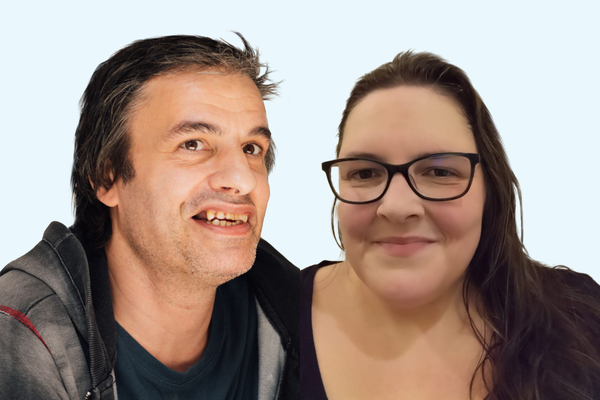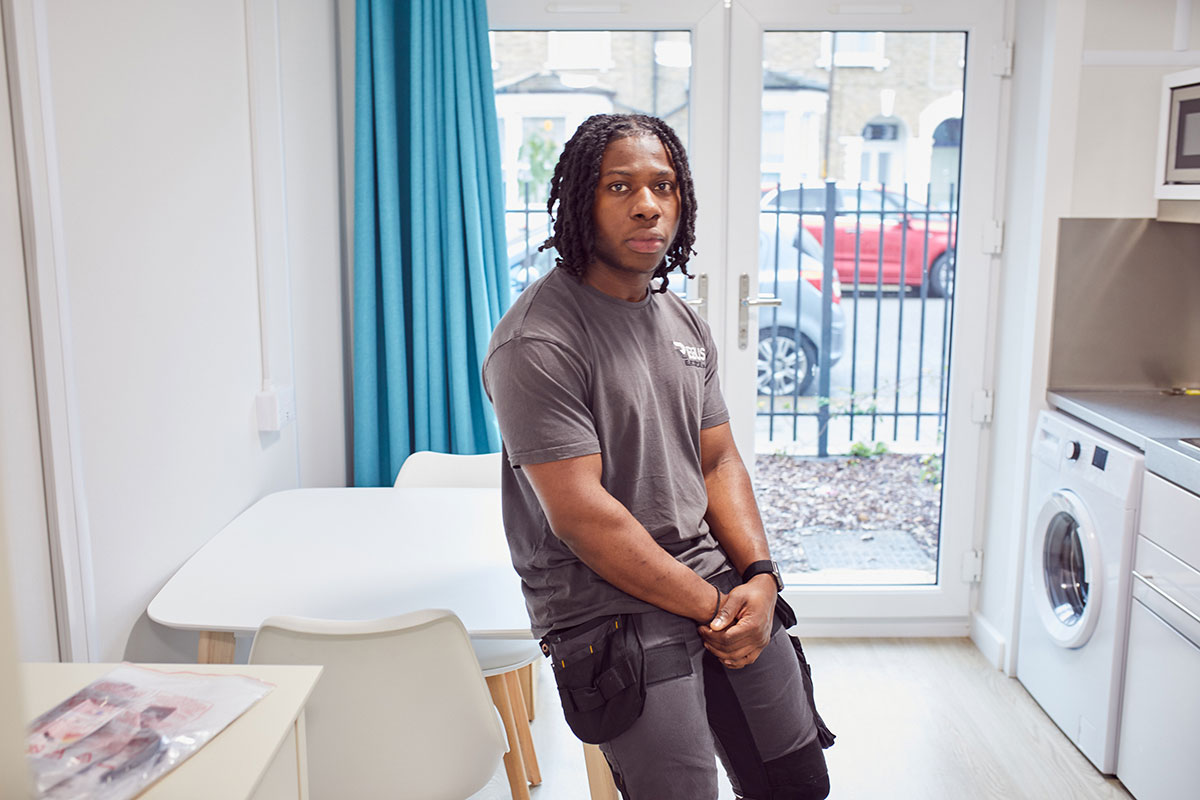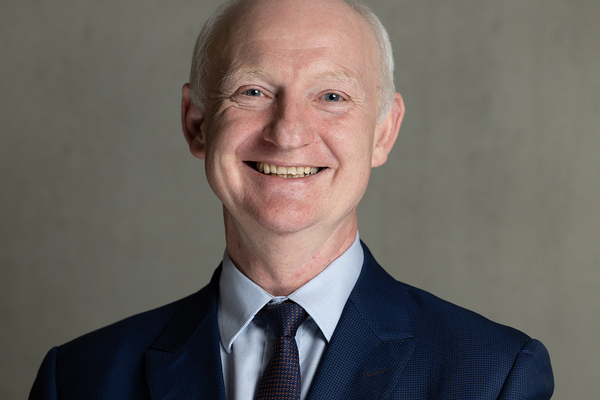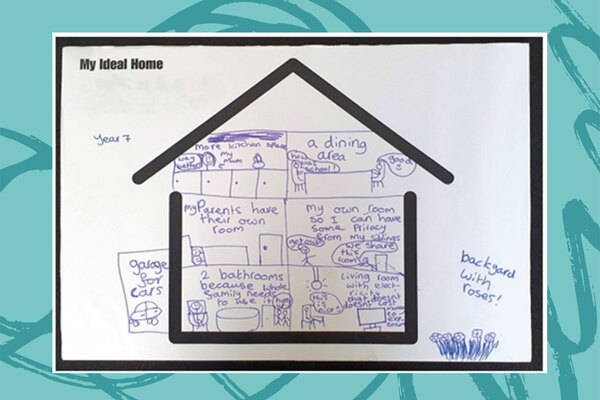You are viewing 1 of your 1 free articles
A new model of housing for young people
In Peckham, a homelessness charity has launched a pilot for independent living flats for 18 to 24-year-olds. Jess McCabe reports. Photography by Jon Enoch
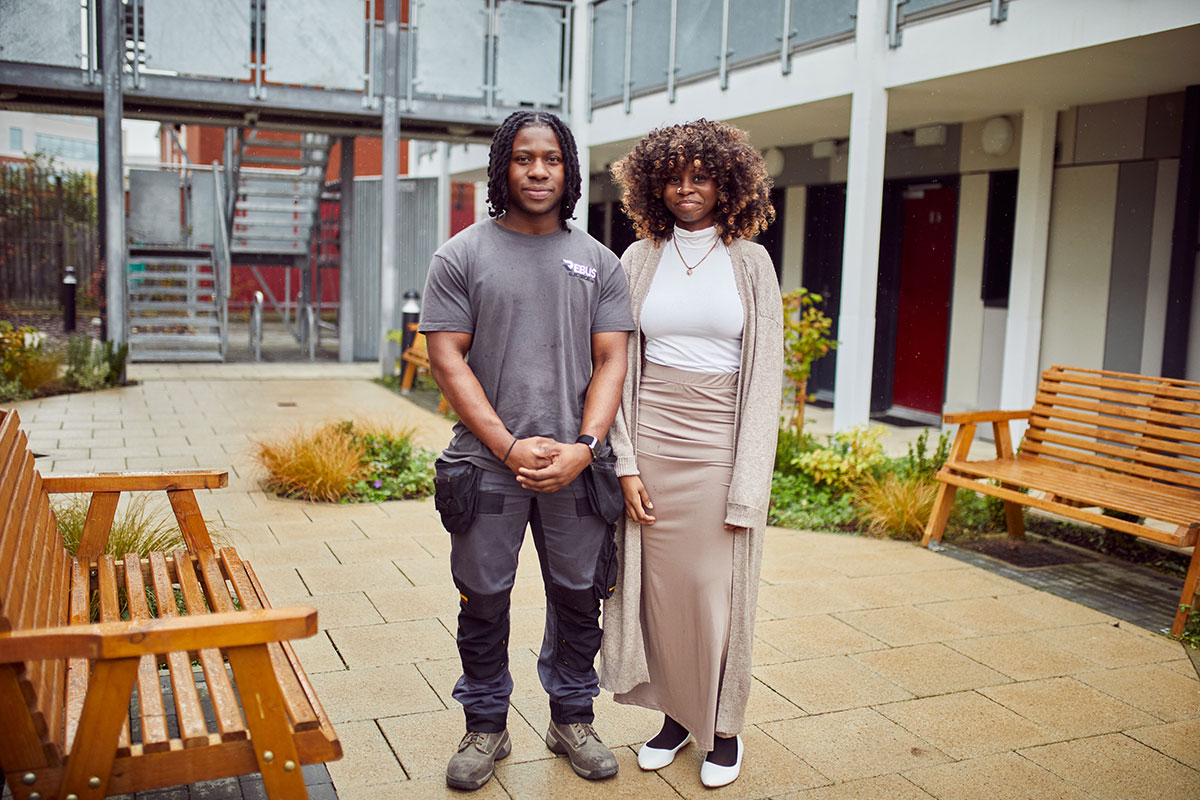

You walk down a street in Peckham, made up of modest Victorian terraces, then turn the corner and see Reuben House. The modern two-storey block surrounds a pristine courtyard, with barely a leaf out of place.
When Inside Housing visits, several staff tell us the same anecdote. On one occasion, one of the young people who lived here left a rubbish bag outside their front door for too long and other residents came around to tell them it was not on.
“I didn’t see it, but I heard about it,” says one resident as we walk around.
Reuben House is an independent living project of 33 flats, each for 18 to 24-year-olds. All residents must be working – we meet Andrew, an apprentice electrician, and Iyesha, a housing apprentice working for a local authority.
The first residents moved in “on a wet and frosty Monday morning” in January. “They all looked terrified with an equal measure of joy and relief,” says Lorri Holding, head of independent living at Centrepoint, which built and run this project. It was officially opened in July by Prince William.
This £3.9m project is a showcase for the homelessness charity. Centrepoint is trying to raise £30m in donations to build 300 independent living flats on this model by 2026. It wants the model to be picked up by other housing providers, and worked into government policy.
So far, Centrepoint has built 50 of these independent living flats for vulnerable young people, including Reuben House, leaving it with 250 to go. “We all know 300 homes will never change the landscape for young people,” sums up Sally Orlopp, director of Centrepoint’s independent living programme. “It’s about creating this as a flagship, so that we can bring developers here. We want to be involved in Section 106s… we want to persuade developers, we want to persuade government.”
Getting young people on their feet
This project is for young people who need low levels of support – it is a waypoint, designed to help them get on their feet. Rent is worked out individually at one-third of their wages, and residents can stay for two years, but this can be extended year by year if needed, up to a maximum of five years.
One of the flats has been set up as a show home. I sit at the two-person kitchen table while two residents and three Centrepoint staff are squeezed in on the sofa and leaning on the counters. It is modern, clean and small, but pleasant and well-designed. The upstairs flats have Juliet balconies, and the downstairs ones open up onto an outdoor space.
At one point during the chat, Ms Orlopp points out that housing secretary Michael Gove has sat in the same seat as me. Other visitors have included London’s deputy housing mayor Tom Copley.
Yet Centrepoint faces an uphill struggle.
First there is the size of the flats – each one is 20.5 square metres. This is much smaller than national space standards, which require new one-bedroom homes to be a minimum of 37 square metres.
Reuben House was partly funded by the Greater London Authority. “We are the only housing association that’s ever secured any grant, we believe, under 26 square metres,” says Ms Orlopp.
Centrepoint ran into questions about whether the density of the project was too high.
“It was three years of pain, backwards and forwards to Southwark [Council],” Ms Orlopp says. But by the time it was finished, they were won over.
From Southwark’s perspective, the council says it was “delighted” that Centrepoint chose the borough for the home for the project. “It’s now the blueprint for similar schemes elsewhere, which confirms what we knew to be true when planning went in: it’s a uniquely effective solution to a specific housing need. We made a departure from policy because of the special circumstances of the proposal, which took longer than usual to get approved as it was the first time this type of independent living had been submitted for planning. We are grateful to have local young people benefiting from the excellent support offered by Centrepoint at Reuben House,” says Helen Dennis, cabinet member for new homes and sustainable development at Southwark.
The reasons planners and policymakers focus on building well-sized social rent homes with security of tenure are obvious enough – at least to Inside Housing readers. But, says Alicia Walker, director of policy, research and campaigns at Centrepoint, this logic fundamentally misses out the needs of the specific group of young people that Reuben House is aimed at.
Such small flats are not suitable for everyone – it would be too small for someone with a child or a partner. But it is not for them. “One of the beautiful things about [Reuben House] is that you put young people who have experiences that young people shouldn’t have on the same footing as the rest of the population,” Ms Walker says. “It’s the ability to say, as a society, we’ve got you, we’ve got your back.”
The alternatives for young people show how starkly this is needed. Iyesha was only 18 when she moved into temporary accommodation in south London, having left home because her family was abusive. “I knew if I did not leave, there was no future for myself,” she says. But her London council placed her in terrible temporary accommodation, with no support. It was filthy, and she and her best friend got together to scrub the place as clean as possible. The shower and toilet were broken. There was mould and a mice problem.
When she talked to the private landlord who provided the temporary accommodation, she says: “He didn’t even apologise to me. He was just like, ‘Oh, you know, the last guy who was here, he’s a man, he didn’t care to clean. So you have to deal with it.’” The landlord would also turn up unannounced, late at night.
“There wasn’t anyone to report it to. Because I was 18, I really didn’t even know how to report it – I was so lost.”
Andrew shares: “My story is different. I never wanted to leave home. I went into care when I was 10 years old.” His parents divorced when he was small, and his mother was in Nigeria. Andrew’s dad looked after him, but then he had a stroke. Next thing, Andrew was in foster care. While he had a good relationship with his foster carer and wanted to stay, she could not afford to keep him. The day after his 18th birthday, he moved into a Salvation Army hostel.
From aged 18 to 19, Andrew was struggling to afford rent at homeless hostels on the small wages from his apprenticeship. His school friends were living at home, having fun and going on holidays. Some were preparing for university. Sometimes his friends would offer to pay for him to join them but, he says, he didn’t want to be in debt to them. “Sometimes I’d lie, saying, ‘Nah man, I’m working. I’m working that day, that weekend.’”
“I noticed the invites became less,” he recalls. He moved to another hostel, living with adults of all ages. “I just became isolated,” he says.
Referral to Reuben House
Just before coming to Reuben House, Andrew’s rent at another homelessness project was £1,200 a month. Although he got help through Universal Credit, he was scraping by each month. And when his lease came to an end, he was faced with nowhere to go – until he got the referral to Reuben House. The average rent in London for a one bed, Ms Orlopp points out, is £2,684. “If you’re on that first start in life where you live independently, it’s probably not affordable,” she says.
Ms Walker says: “We are expecting far too much of young people. The impact of failure if you don’t have that safety net is huge.”
It is easy to see why for both residents, Reuben House was such a good option. It is clean – beautiful even. It is well thought out, with outdoor space.
The location, near Queens Road Peckham Station, is central and well connected. The small scale of the flats is not unlike student accommodation.
All the residents are other young people, each from different backgrounds, but all vulnerable in their own way. All are working, so they feel like they are on the same page. This is not the kind of place where young people are having parties. They are focused on the next stage of their lives.
Yet it has not been easy to replicate Reuben House. Centrepoint had a line on some Section 106 homes in Bayswater – it hoped to secure some more units as part of the major development that is turning the old Whiteleys shopping mall into The Whiteley, which will be fancy condos and a hotel. Centrepoint lost out to a proposition for more typical affordable housing.
“That took a year of our lives getting that deal on the table, getting them to think about Centrepoint as a provider. I’m passionate about trying to get another Section 106 opportunity,” says Ms Orlopp. “That’s where it could be a really good amplification for us.”
Andrew and Iyesha are keen to talk about how the project has benefited them. Andrew says he wants more projects like this, particularly for young people coming out of care.
“That transition from care to council flat is very rough for a care child,” he says. Andrew is on the waiting for a social home, which hopefully will be where he goes after he leaves Reuben House.
The two residents are incredibly driven. It is hard to sit through the conversation without thinking about how much they have had to grapple with so early in life.
At 20, Andrew says: “Because you have a limited time here, wherever you’re working, or whatever you’re doing has to make sense. You can’t just be working in a shop and hopefully you get your raise [to pay for a private rent flat].”
Iyesha’s job involves supporting other tenants struggling with housing problems. “It’s a big positive that I get to help people who are in similar situations,” the 22-year-old says.
Across the city and the country, many other vulnerable young people have similar experiences of moving quickly into adulthood with little or no support. The model piloted by Centrepoint in Peckham is one answer to slow down that experience. Iyesha and Andrew’s peers are at university, or perhaps in similar jobs but living with their families, or trying to work out what to do with their lives.
Andrew says he had the grades for university, but he needed something right away that would result in a career and pay. He points out most university students are going back home in the holidays, and will have that option once their course finishes as well.
Looking around the show flat, he points out: “You’re not here because there was a ‘back home’.”
Sign up for the IH long read bulletin
Already have an account? Click here to manage your newsletters

